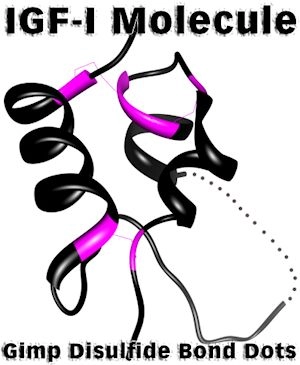Introduction to Premature Ejaculation
Premature ejaculation (PE) is a common sexual dysfunction that affects many American men, leading to distress and impacting their quality of life. Defined as ejaculation that occurs sooner than desired, either before or shortly after penetration, PE can be a source of frustration and anxiety. Understanding the biological underpinnings of this condition is crucial for developing effective management strategies.
The Biological Clock of Ejaculation
The process of ejaculation is governed by a complex interplay of neurological, hormonal, and psychological factors. The 'biological clock' of ejaculation refers to the timing mechanism that controls when ejaculation occurs. This mechanism involves the central nervous system, particularly the spinal ejaculation generator, which coordinates the muscular contractions necessary for ejaculation.
Neurological Pathways and Premature Ejaculation
In men with PE, the neurological pathways that control ejaculation may be hypersensitive or have a lower threshold for activation. Research suggests that serotonin, a neurotransmitter, plays a significant role in modulating the ejaculatory reflex. Lower levels of serotonin activity in the brain may lead to a shorter time to ejaculation, contributing to PE.
Hormonal Influences on Ejaculation Timing
Hormones such as testosterone and prolactin also influence ejaculation timing. While testosterone is essential for sexual function, an imbalance can affect ejaculatory control. Prolactin levels rise after ejaculation and are thought to play a role in the refractory period, the time during which a man is unable to achieve another erection.
Psychological Factors and the Biological Clock
Psychological factors, including anxiety and stress, can significantly impact the biological clock of ejaculation. Performance anxiety, in particular, can lead to a heightened state of arousal, which may precipitate PE. Cognitive-behavioral therapy and other psychological interventions can help men manage these factors and improve ejaculatory control.
Genetic Predispositions to Premature Ejaculation
Emerging research indicates that genetics may also play a role in PE. Certain genetic variations may predispose individuals to a shorter ejaculatory latency time. Understanding these genetic factors could lead to personalized treatment approaches in the future.
Diagnosis and Assessment of Premature Ejaculation
Diagnosing PE involves a thorough medical history and, in some cases, a physical examination. The International Society for Sexual Medicine defines PE as ejaculation that always or nearly always occurs prior to or within about one minute of vaginal penetration. Self-reported measures, such as the Premature Ejaculation Diagnostic Tool (PEDT), can aid in the assessment.
Treatment Options for Managing Premature Ejaculation
Several treatment options are available for men with PE. Selective serotonin reuptake inhibitors (SSRIs), such as dapoxetine, are commonly prescribed to delay ejaculation. Topical anesthetics applied to the penis can also reduce sensitivity and prolong the time to ejaculation. Behavioral techniques, such as the start-stop method and the squeeze technique, can be effective in improving ejaculatory control.
Lifestyle Modifications and Premature Ejaculation
Lifestyle modifications can also play a role in managing PE. Regular exercise, a balanced diet, and stress-reduction techniques such as mindfulness and meditation can improve overall sexual health and potentially alleviate symptoms of PE.
The Future of Premature Ejaculation Research
Ongoing research into the biological clock of ejaculation continues to shed light on the mechanisms underlying PE. Advances in neuroimaging and genetic studies may lead to more targeted and effective treatments. As our understanding of the biological and psychological factors involved in PE grows, so too will our ability to help American men overcome this challenging condition.
Conclusion: Empowering Men to Take Control
Premature ejaculation is a multifaceted condition that requires a comprehensive approach to treatment. By understanding the biological clock of ejaculation and the various factors that influence it, American men can take proactive steps to manage PE and improve their sexual health. With the right combination of medical, psychological, and lifestyle interventions, men can regain control over their ejaculatory function and enhance their overall well-being.
Contact Us For A Fast And Professional Response

- Mastering the Clock: Hormonal Influences on Ejaculatory Control and Addressing Premature Ejaculation [Last Updated On: February 17th, 2025] [Originally Added On: February 17th, 2025]
- Navigating the Speed of Intimacy: A Comprehensive Guide to Premature Ejaculation in American Males [Last Updated On: February 20th, 2025] [Originally Added On: February 20th, 2025]
- The Unveiled Mystery: A Thorough Understanding of Premature Ejaculation [Last Updated On: February 25th, 2025] [Originally Added On: February 25th, 2025]
- Unveiling the Mystery: Decoding the Science Behind Premature Ejaculation [Last Updated On: February 26th, 2025] [Originally Added On: February 26th, 2025]
- Unraveling the Enigma: Understanding the Catalysts of Premature Ejaculation [Last Updated On: February 27th, 2025] [Originally Added On: February 27th, 2025]
- Unraveling The Enigma: The Underlying Psychology Behind Premature Ejaculation [Last Updated On: February 28th, 2025] [Originally Added On: February 28th, 2025]
- Master the Art of Intimacy: Proven Techniques to Prolong Ejaculation [Last Updated On: February 28th, 2025] [Originally Added On: February 28th, 2025]
- Demystifying the Haste Hastened: Insights into Premature Ejaculation Matter [Last Updated On: March 1st, 2025] [Originally Added On: March 1st, 2025]
- Unveiling the Intricacy of Premature Ejaculation [Last Updated On: March 2nd, 2025] [Originally Added On: March 2nd, 2025]
- Comprehensive Overview of Premature Ejaculation: Causes, Diagnosis, and Treatment Options [Last Updated On: March 3rd, 2025] [Originally Added On: March 3rd, 2025]
- Understanding and Managing Premature Ejaculation: Impacts and Treatments [Last Updated On: March 4th, 2025] [Originally Added On: March 4th, 2025]
- Understanding Premature Ejaculation: Causes, Diagnosis, and Treatment Options [Last Updated On: March 5th, 2025] [Originally Added On: March 5th, 2025]
- Understanding and Managing Delayed Ejaculation: Causes, Strategies, and Treatments [Last Updated On: March 6th, 2025] [Originally Added On: March 6th, 2025]
- Breaking the Cycle: Managing Performance Anxiety and Premature Ejaculation Effectively [Last Updated On: March 7th, 2025] [Originally Added On: March 7th, 2025]
- Understanding Premature Ejaculation: Impact, Diagnosis, Treatment, and Emerging Therapies [Last Updated On: March 8th, 2025] [Originally Added On: March 8th, 2025]
- Comprehensive Guide to Managing Premature Ejaculation: Natural Remedies and Behavioral Techniques Explained [Last Updated On: March 9th, 2025] [Originally Added On: March 9th, 2025]
- Understanding Premature Ejaculation: Facts, Myths, and Effective Management for American Men [Last Updated On: March 10th, 2025] [Originally Added On: March 10th, 2025]
- Navigating the Dual Challenge: Assessing Medications for Both Erectile Dysfunction and Premature Ejaculation [Last Updated On: March 14th, 2025] [Originally Added On: March 12th, 2025]
- Mastering Ejaculatory Control: Techniques for Enhanced Sexual Satisfaction in American Men [Last Updated On: March 13th, 2025] [Originally Added On: March 13th, 2025]
- Enhancing Intimacy: The Role of Mindfulness in Managing Premature Ejaculation [Last Updated On: March 15th, 2025] [Originally Added On: March 15th, 2025]
- Managing Premature Ejaculation: Communication, Strategies, and Lifestyle Changes for American Males [Last Updated On: March 17th, 2025] [Originally Added On: March 17th, 2025]
- Understanding Premature Ejaculation: Nervous System's Role and Treatment Advances [Last Updated On: March 17th, 2025] [Originally Added On: March 17th, 2025]
- Anxiety's Role in Premature Ejaculation: Causes, Impacts, and Interventions [Last Updated On: March 18th, 2025] [Originally Added On: March 18th, 2025]
- Managing Premature Ejaculation: Strategies for American Men's Sexual Health [Last Updated On: March 19th, 2025] [Originally Added On: March 19th, 2025]
- Premature Ejaculation's Social Impact: Psychological, Relational, and Professional Effects in American Men [Last Updated On: March 19th, 2025] [Originally Added On: March 19th, 2025]
- Managing Premature Ejaculation in Casual Relationships: Strategies and Insights [Last Updated On: March 19th, 2025] [Originally Added On: March 19th, 2025]
- Effective Strategies for Managing Premature Ejaculation in American Men [Last Updated On: March 20th, 2025] [Originally Added On: March 20th, 2025]
- Countdown Challenge: Techniques to Overcome Premature Ejaculation in American Men [Last Updated On: March 20th, 2025] [Originally Added On: March 20th, 2025]
- Effective Techniques for Managing Premature Ejaculation in American Males [Last Updated On: March 20th, 2025] [Originally Added On: March 20th, 2025]
- Managing Premature Ejaculation: Holistic Strategies for Enhanced Sexual Endurance [Last Updated On: March 21st, 2025] [Originally Added On: March 21st, 2025]
- Dietary Strategies to Manage Premature Ejaculation in American Males [Last Updated On: March 21st, 2025] [Originally Added On: March 21st, 2025]
- Lifestyle Changes to Manage Premature Ejaculation in American Men [Last Updated On: March 21st, 2025] [Originally Added On: March 21st, 2025]
- Psychological Strategies for Managing Premature Ejaculation in American Men [Last Updated On: March 21st, 2025] [Originally Added On: March 21st, 2025]
- Managing Premature Ejaculation: New Research and Effective Treatments [Last Updated On: March 22nd, 2025] [Originally Added On: March 22nd, 2025]
- Understanding and Managing Premature Ejaculation: Causes, Treatments, and Holistic Approaches [Last Updated On: March 22nd, 2025] [Originally Added On: March 22nd, 2025]
- American Man's Journey: Overcoming Premature Ejaculation with Medical Guidance [Last Updated On: March 22nd, 2025] [Originally Added On: March 22nd, 2025]
- Managing Premature Ejaculation: Holistic Approaches for Lasting Love and Intimacy [Last Updated On: March 22nd, 2025] [Originally Added On: March 22nd, 2025]
- Non-Pharmacological Therapies for Premature Ejaculation: A Comprehensive Overview [Last Updated On: March 22nd, 2025] [Originally Added On: March 22nd, 2025]
- Understanding and Managing Premature Ejaculation: Causes, Treatments, and Support [Last Updated On: March 23rd, 2025] [Originally Added On: March 23rd, 2025]
- Restorative Sleep Enhances Sexual Stamina, Helps Manage Premature Ejaculation in American Males [Last Updated On: March 23rd, 2025] [Originally Added On: March 23rd, 2025]
- Fitness Regimen Enhances Sexual Health, Combats Premature Ejaculation in American Males [Last Updated On: March 23rd, 2025] [Originally Added On: March 23rd, 2025]
- Managing Premature Ejaculation: Stress Reduction Strategies for Enhanced Sexual Health [Last Updated On: March 24th, 2025] [Originally Added On: March 24th, 2025]
- Cognitive Behavioral Therapy: A Promising Approach to Managing Premature Ejaculation [Last Updated On: March 24th, 2025] [Originally Added On: March 24th, 2025]
- Apps Revolutionize Premature Ejaculation Management with Technology and Privacy [Last Updated On: March 24th, 2025] [Originally Added On: March 24th, 2025]
- Premature Ejaculation in American Men: Holistic Approaches to Enhanced Sexual Health [Last Updated On: March 24th, 2025] [Originally Added On: March 24th, 2025]
- Managing Premature Ejaculation: A Collaborative Approach for Couples [Last Updated On: March 25th, 2025] [Originally Added On: March 25th, 2025]
- Premature Ejaculation: Unveiling Emotional and Financial Burdens and Management Strategies [Last Updated On: March 25th, 2025] [Originally Added On: March 25th, 2025]
- Managing Premature Ejaculation: Techniques, Therapies, and Success Stories in American Men [Last Updated On: March 25th, 2025] [Originally Added On: March 25th, 2025]
- Biofeedback: A Non-Invasive Solution for Premature Ejaculation in American Males [Last Updated On: March 25th, 2025] [Originally Added On: March 25th, 2025]
- Mastering Sexual Endurance: Techniques to Overcome Premature Ejaculation [Last Updated On: March 26th, 2025] [Originally Added On: March 26th, 2025]
- Mastering Ejaculatory Control: Techniques and Insights for American Men [Last Updated On: March 26th, 2025] [Originally Added On: March 26th, 2025]
- Overcoming Premature Ejaculation Stigma: A Comprehensive Guide for American Men [Last Updated On: March 26th, 2025] [Originally Added On: March 26th, 2025]
- Managing Premature Ejaculation: Techniques and Strategies for American Males [Last Updated On: March 26th, 2025] [Originally Added On: March 26th, 2025]
- Managing Premature Ejaculation: Self-Help Resources and Techniques for American Men [Last Updated On: March 26th, 2025] [Originally Added On: March 26th, 2025]
- Premature Ejaculation: Understanding, Treating, and Overcoming in the U.S. [Last Updated On: March 27th, 2025] [Originally Added On: March 27th, 2025]
- Effective Strategies for Managing Premature Ejaculation in American Males [Last Updated On: March 27th, 2025] [Originally Added On: March 27th, 2025]
- Understanding and Managing Premature Ejaculation: Science and Strategies [Last Updated On: March 27th, 2025] [Originally Added On: March 27th, 2025]
- Understanding and Managing Premature Ejaculation: Enhancing Intimacy and Connection [Last Updated On: March 27th, 2025] [Originally Added On: March 27th, 2025]
- Managing Premature Ejaculation: Behavioral Techniques for American Men's Sexual Health [Last Updated On: March 27th, 2025] [Originally Added On: March 27th, 2025]
- Open Communication: Enhancing Sexual Stamina and Managing Premature Ejaculation [Last Updated On: March 27th, 2025] [Originally Added On: March 27th, 2025]
- Managing Premature Ejaculation: Techniques, Therapies, and Lifestyle Changes for American Men [Last Updated On: March 28th, 2025] [Originally Added On: March 28th, 2025]
- Mastering Foreplay to Manage Premature Ejaculation: Techniques and Tips for American Men [Last Updated On: March 28th, 2025] [Originally Added On: March 28th, 2025]
- Medications and Their Impact on Ejaculatory Speed in American Males with PE [Last Updated On: March 28th, 2025] [Originally Added On: March 28th, 2025]
- Premature Ejaculation: Age-Specific Causes and Management Strategies for American Males [Last Updated On: March 28th, 2025] [Originally Added On: March 28th, 2025]
- Herbal Remedies for Premature Ejaculation: A Holistic Approach for American Males [Last Updated On: March 28th, 2025] [Originally Added On: March 28th, 2025]
- Expert Insights on Premature Ejaculation: Causes, Treatments, and Psychological Impacts [Last Updated On: March 28th, 2025] [Originally Added On: March 28th, 2025]
- Premature Ejaculation: Causes, Diagnosis, and Treatment Options for American Men [Last Updated On: March 29th, 2025] [Originally Added On: March 29th, 2025]
- Managing Premature Ejaculation: Strategies for American Men's Sexual Health [Last Updated On: March 29th, 2025] [Originally Added On: March 29th, 2025]
- Managing Premature Ejaculation: Psychological, Pharmacological, and Behavioral Strategies for American Men [Last Updated On: March 29th, 2025] [Originally Added On: March 29th, 2025]
- Managing Premature Ejaculation: Strategies for American Men's Sexual Health [Last Updated On: March 30th, 2025] [Originally Added On: March 30th, 2025]
- Exploring Treatments for Premature Ejaculation: Behavioral to Pharmacological Approaches [Last Updated On: March 31st, 2025] [Originally Added On: March 31st, 2025]
- Overcoming Premature Ejaculation: Personal Stories and Effective Strategies for American Men [Last Updated On: April 1st, 2025] [Originally Added On: April 1st, 2025]
- Exploring the Overlap Between Erectile Dysfunction and Premature Ejaculation in American Men [Last Updated On: April 1st, 2025] [Originally Added On: April 1st, 2025]
- Controlled Breathing: A Holistic Approach to Managing Premature Ejaculation [Last Updated On: April 2nd, 2025] [Originally Added On: April 2nd, 2025]
- Managing Premature Ejaculation: Strategies for American Men's Sexual Health [Last Updated On: April 5th, 2025] [Originally Added On: April 5th, 2025]
- Innovative Solutions and Future Trends in Managing Premature Ejaculation [Last Updated On: April 5th, 2025] [Originally Added On: April 5th, 2025]
- Testosterone's Role in Ejaculatory Control and Premature Ejaculation Management [Last Updated On: April 6th, 2025] [Originally Added On: April 6th, 2025]
- Premature Ejaculation and Prostate Health: Understanding Links and Management Strategies [Last Updated On: April 8th, 2025] [Originally Added On: April 8th, 2025]
- Premature Ejaculation: Causes, Impacts, and Effective Management Strategies [Last Updated On: April 9th, 2025] [Originally Added On: April 9th, 2025]
- Managing Premature Ejaculation: Psychological, Medical, and Behavioral Strategies for American Men [Last Updated On: April 10th, 2025] [Originally Added On: April 10th, 2025]

















